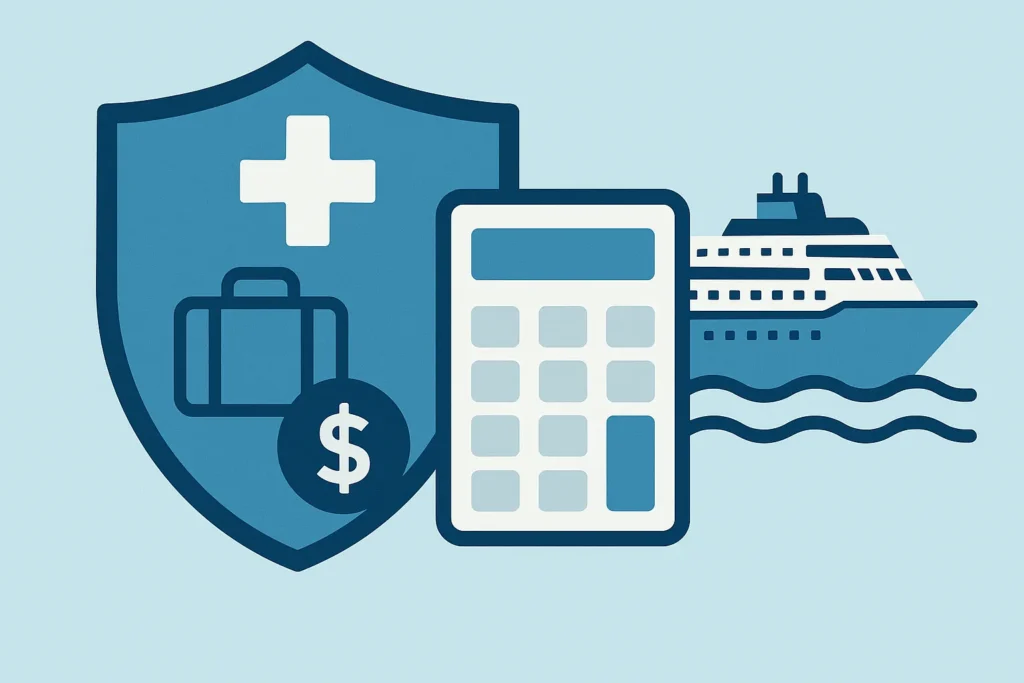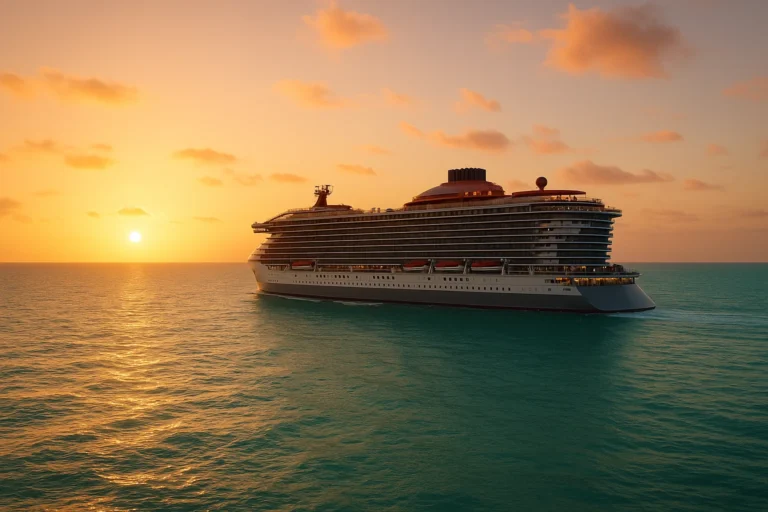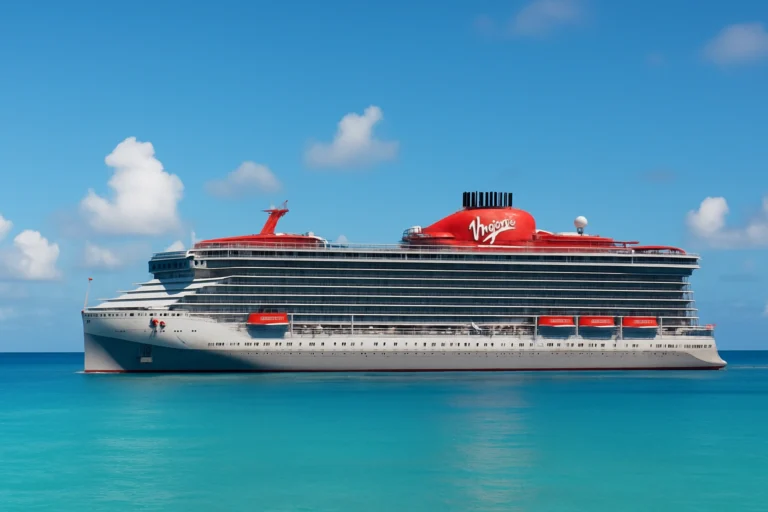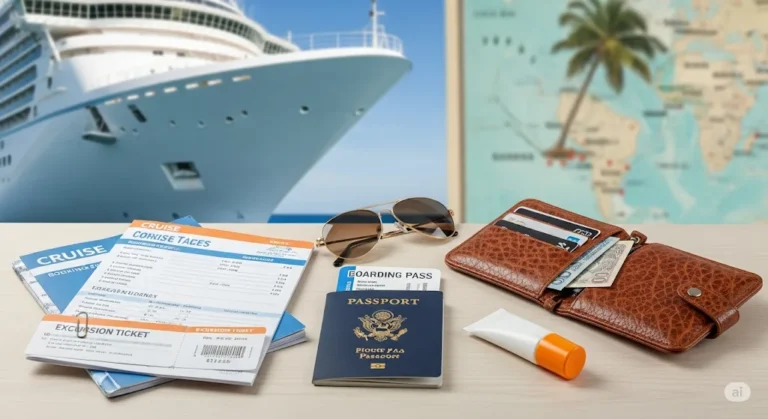Cruise Insurance Costs in 2025: What’s a Fair Price?
Planning your dream cruise for 2025 involves exciting decisions about destinations, ships, and itineraries. However, one crucial aspect often overlooked or misunderstood is cruise insurance. While it might seem like an added expense, travel insurance is an essential safeguard against the unpredictable, offering peace of mind for your significant investment. But as prices fluctuate, a common question arises: What’s a fair price for cruise insurance in 2025?
This comprehensive guide will break down the factors influencing cruise insurance costs, explore different types of coverage, provide average price estimates for 2025, and offer expert tips on how to find a policy that offers both robust protection and a fair price. Prepare to navigate the world of cruise insurance with confidence.
Why Do You Need Cruise Insurance?
Cruises, while largely seamless, are susceptible to unexpected disruptions. Unlike land-based vacations, a cruise can present unique challenges, and standard health or homeowner’s insurance might not offer adequate protection once you’re at sea or in international waters. Here’s why cruise insurance is vital:
- Trip Cancellation & Interruption: Life happens. Illness, family emergencies, or unexpected work demands can force you to cancel or cut short your trip. Insurance can reimburse non-refundable expenses.
- Medical Emergencies & Evacuation: Getting sick or injured on a cruise can be incredibly costly. Medical facilities onboard are limited, and emergency evacuation to a land-based hospital can run into tens or even hundreds of thousands of dollars, often not covered by standard health plans.
- Lost or Delayed Luggage: If your bags don’t make it to the ship or disappear during your trip, insurance can cover the cost of essential items or replace lost belongings.
- Travel Delays: Misses connections due to flight delays, weather, or other unforeseen events can lead to extra accommodation and transportation costs, which insurance can cover.
- Financial Default: While rare, if a cruise line or tour operator goes out of business, insurance can protect your financial investment.
Factors Influencing Cruise Insurance Costs in 2025
The price of cruise insurance isn’t one-size-fits-all. Several key factors determine your premium for 2025:
- Age of Travelers: This is often the biggest factor. Premiums typically increase significantly for travelers aged 65 and above due to higher health risks.
- Total Trip Cost: The more expensive your cruise and associated travel arrangements (flights, pre/post-cruise hotels), the higher your premium will be, as the insurance company is insuring a larger potential payout.
- Cruise Length: Longer cruises naturally incur higher costs because there’s more time for things to go wrong.
- Type of Coverage: Basic plans (cancellation, medical emergency) are cheaper than comprehensive plans that include “Cancel For Any Reason” (CFAR) or extensive medical coverage.
- Medical Conditions: Pre-existing medical conditions can increase your premium or require a waiver, often necessitating purchase within a short window of your initial deposit.
- Number of Travelers: Insuring multiple people on one policy can sometimes offer a slight discount compared to individual policies, but the total cost will be higher.
- Destination: Cruises to remote or high-risk areas might have slightly higher premiums, though this is less common for standard cruise destinations.
Types of Cruise Insurance Coverage
Understanding the common types of coverage will help you choose the right policy:
Trip Cancellation/Interruption:
This covers non-refundable expenses if you have to cancel your trip before departure or cut it short after it has begun due to covered reasons (e.g., illness, death in family, natural disaster, job loss). It’s crucial for protecting your initial investment.
Medical Emergencies & Evacuation:
Perhaps the most critical coverage. It pays for doctor visits, hospital stays, and emergency medical transportation, including costly air ambulance services (medical evacuation), which are often not covered by your domestic health insurance while abroad or at sea.
Baggage Loss/Delay:
Reimburses you for necessary purchases if your luggage is delayed for a specified period (e.g., 6-12 hours) and compensates you if your bags are lost, stolen, or damaged during your trip.
Travel Delay:
Covers additional accommodation, meal, and transportation expenses if you experience unexpected delays that prevent you from reaching your cruise on time or returning home as planned.
“Cancel For Any Reason” (CFAR) (Optional Add-on):
This is a premium add-on that offers the most flexibility. As the name suggests, it allows you to cancel your trip for literally *any* reason (not just covered perils) and receive a partial refund (typically 50-75%) of your non-refundable trip costs. It’s more expensive and often has strict purchase deadlines.
Average Cruise Insurance Costs in 2025 (Estimates)
While precise costs vary, you can generally expect cruise insurance in 2025 to range from **5% to 10% of your total non-refundable trip cost**. For example:
- A $3,000 cruise for a healthy couple in their 40s might see insurance premiums between $150 and $300.
- A $10,000 luxury cruise for travelers in their 70s with pre-existing conditions could see premiums upwards of $1,000-$1,500, especially if CFAR is added.
These are rough estimates. The best way to determine your cost is to get quotes based on your specific details.
📂 Explore More in These Categories
Tips for Finding a Fair Price & Value
Don’t just pick the cheapest policy; focus on value. Here’s how to get a fair price for adequate coverage:
- Compare Multiple Providers: Use online comparison sites or get quotes directly from reputable travel insurance companies (e.g., Allianz, Travelex, Generali, AIG). Don’t just rely on the cruise line’s offering, which might be less comprehensive or more expensive.
- Read the Policy Document Thoroughly: Understand what is and isn’t covered, especially regarding pre-existing conditions, specific activities (e.g., extreme sports), and cancellation reasons.
- Consider an Annual Plan: If you plan to take multiple cruises or trips within a year, an annual multi-trip policy can often be more cost-effective than buying single-trip policies.
- Evaluate Existing Coverage: Check if your credit card or existing health/homeowner’s insurance offers any travel benefits that might overlap, so you don’t pay for redundant coverage.
- Buy Early, Especially for CFAR & Pre-existing Conditions: To activate certain benefits (like pre-existing condition waivers or CFAR), policies often need to be purchased within 10-21 days of your initial trip deposit.
- Don’t Be Afraid to Ask Questions: If anything in the policy is unclear, contact the insurance provider directly.
❓ Frequently Asked Questions (FAQ) about Cruise Insurance ❓
Q: Is cruise insurance mandatory?
A: While not typically mandatory by cruise lines, some destinations (like Cuba, which is currently restricted for US citizens, or certain international trips) or specific types of cruises might require it. Even when not required, it’s highly recommended for financial protection and peace of mind.
Q: When should I buy cruise insurance?
A: It’s generally best to buy cruise insurance as soon as you make your initial trip deposit. This allows you to maximize coverage for pre-existing conditions and “Cancel For Any Reason” (CFAR) benefits, which often have early purchase windows.
Q: Does my regular health insurance cover me on a cruise?
A: Most domestic health insurance policies offer very limited or no coverage once you are outside your home country or in international waters. Medicare, for example, does not cover medical care outside the U.S. This is why dedicated travel medical insurance is crucial for cruises.
Q: What is “Cancel For Any Reason” (CFAR) coverage?
A: CFAR is an optional add-on that allows you to cancel your trip for any reason not typically covered by standard policies (e.g., a change of heart) and receive a partial refund (usually 50-75%) of your non-refundable trip costs. It’s more expensive and often has strict purchase deadlines.
Q: Can I buy insurance directly from the cruise line?
A: Yes, most cruise lines offer their own travel insurance plans. However, it’s highly recommended to compare these with policies from independent third-party travel insurance providers, as third-party plans often offer more comprehensive coverage at a better price.
Conclusion: Investing in Peace of Mind for Your 2025 Cruise
While the cost of cruise insurance in 2025 can vary significantly based on individual factors, viewing it as a necessary investment rather than an optional expense is key. A fair price is one that provides comprehensive coverage tailored to your specific needs, protecting you from potentially devastating financial losses due to unforeseen circumstances.
By understanding the influencing factors, comparing different types of policies, and diligently reading the fine print, you can confidently select a cruise insurance plan that offers genuine value and ensures your 2025 cruise is as stress-free and enjoyable as possible. Don’t let an unexpected event turn your dream vacation into a financial nightmare – secure your peace of mind with the right cruise insurance.









